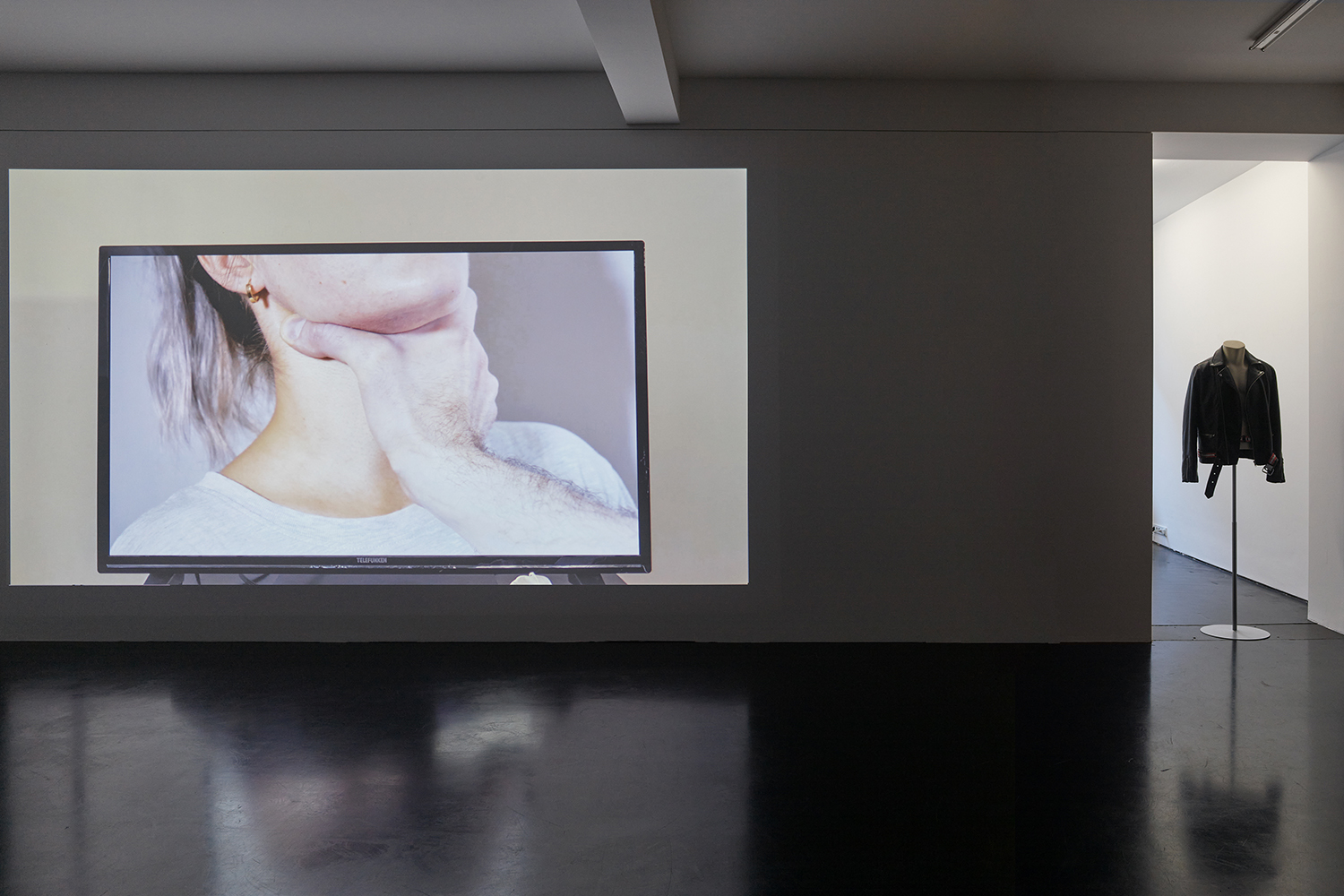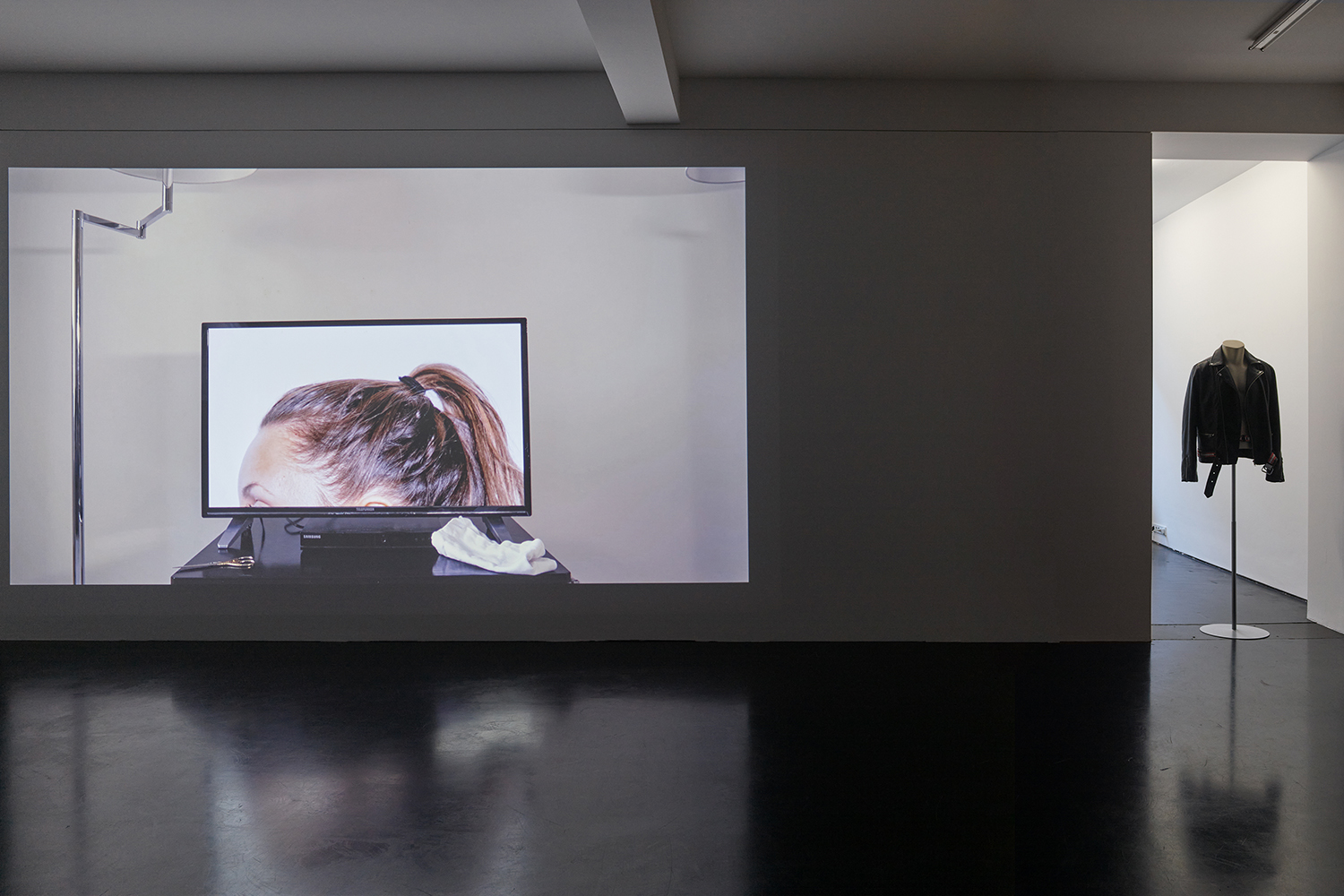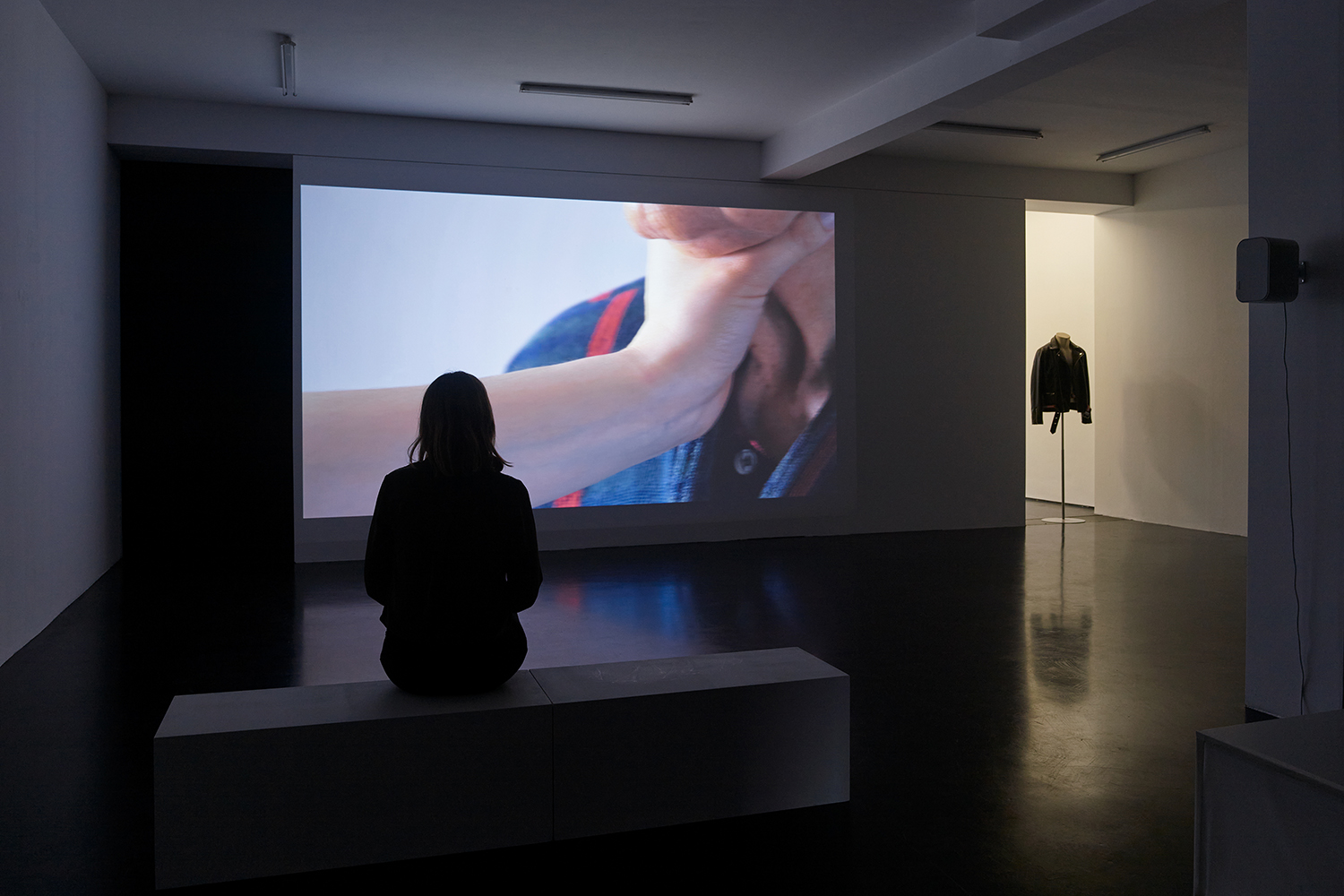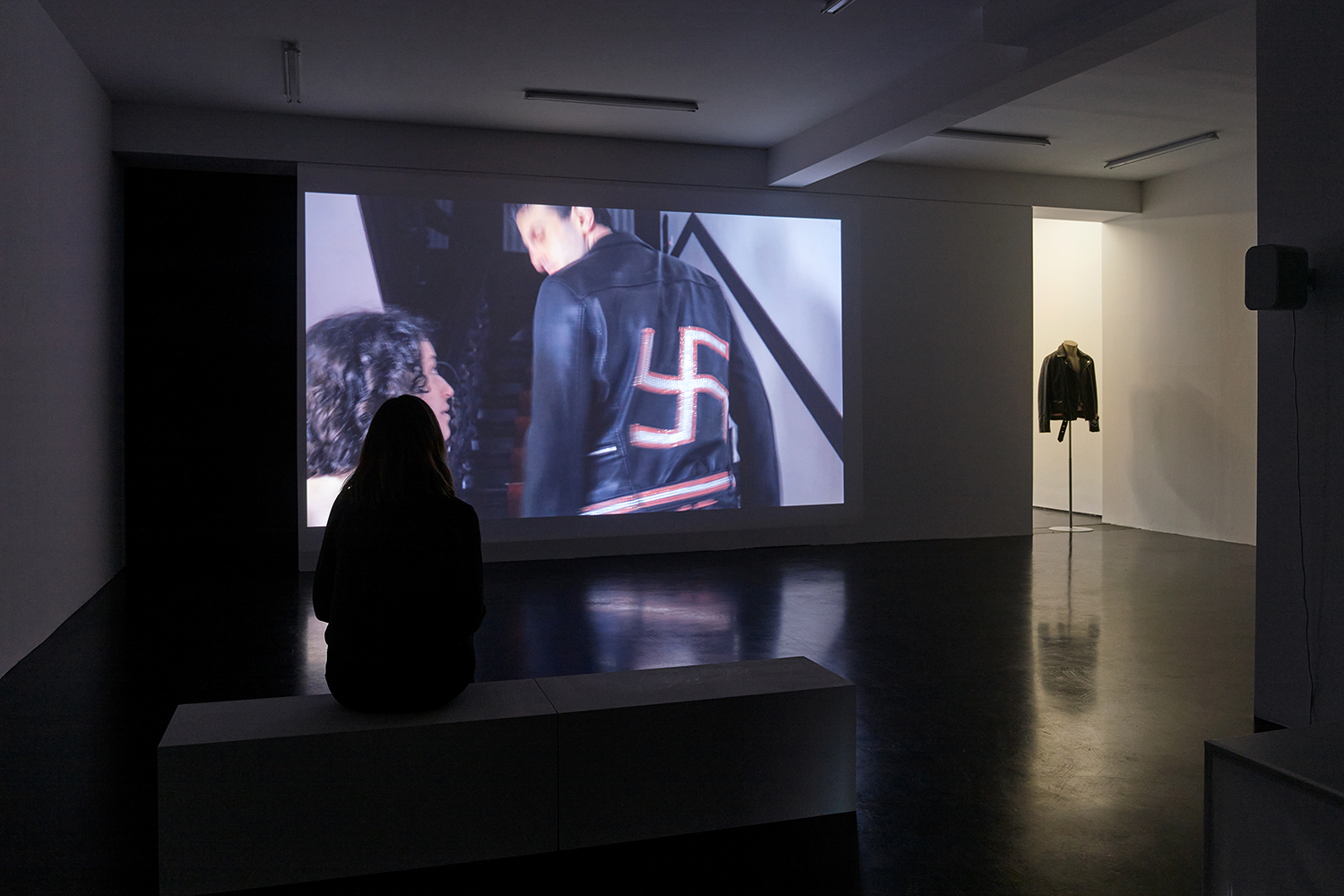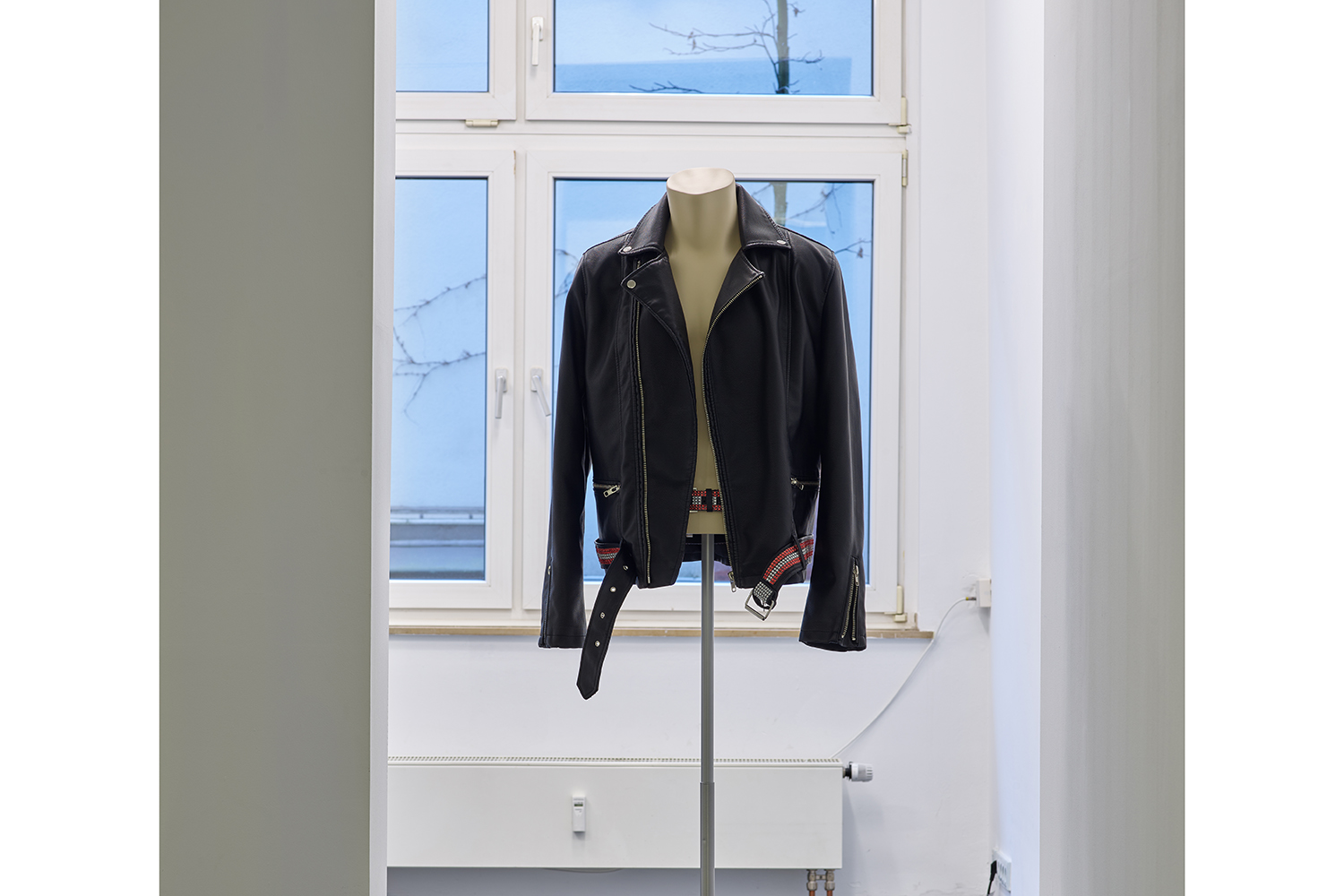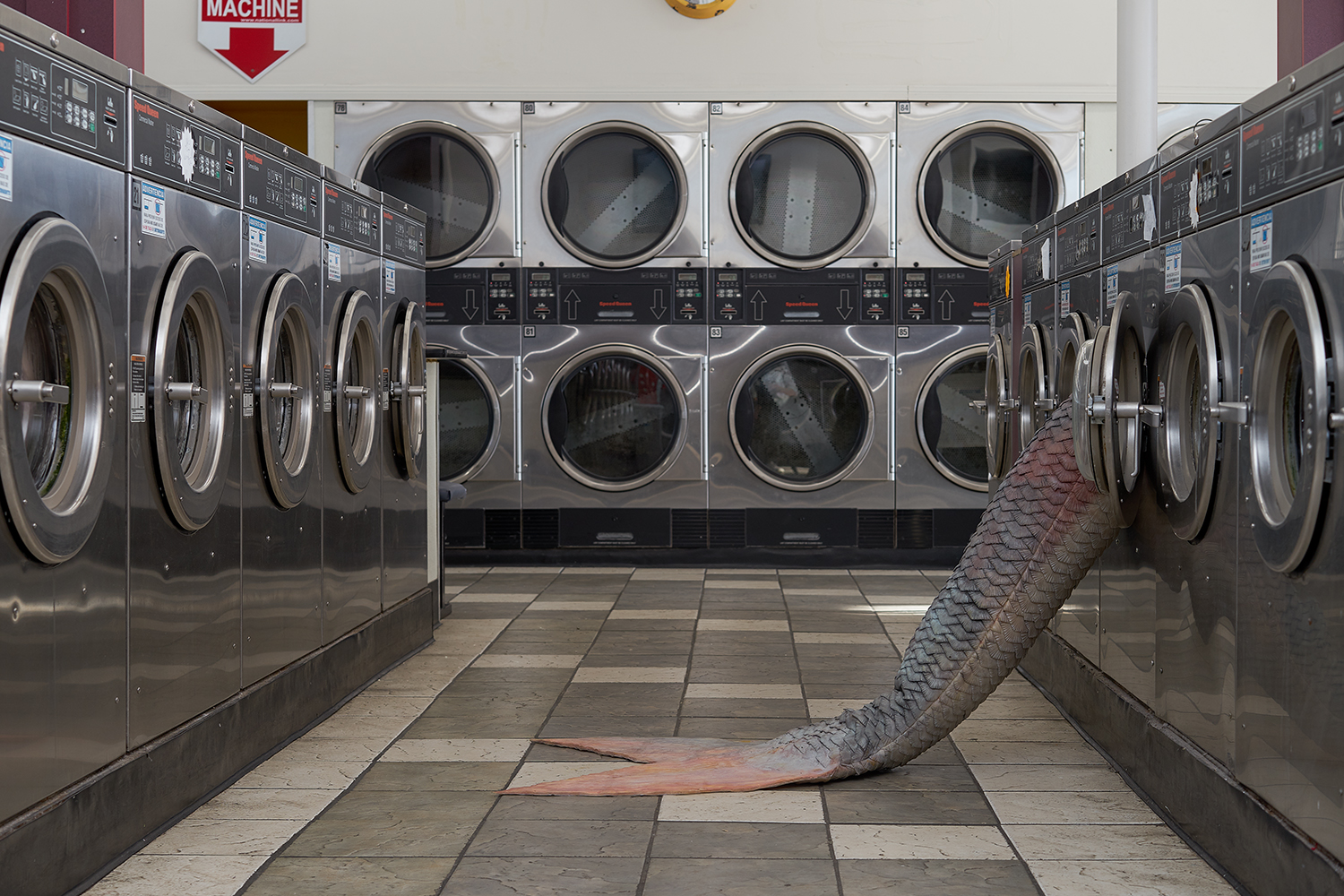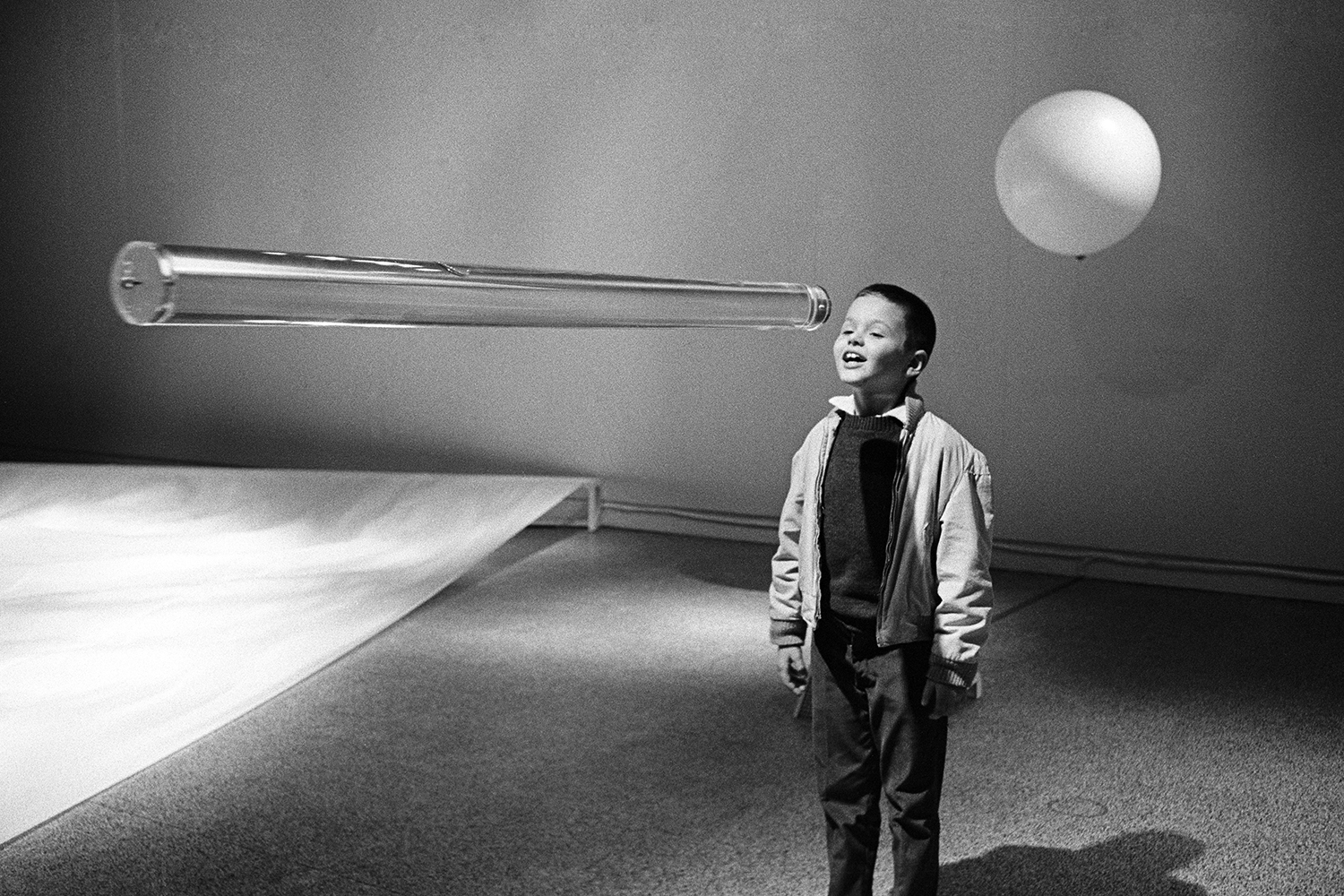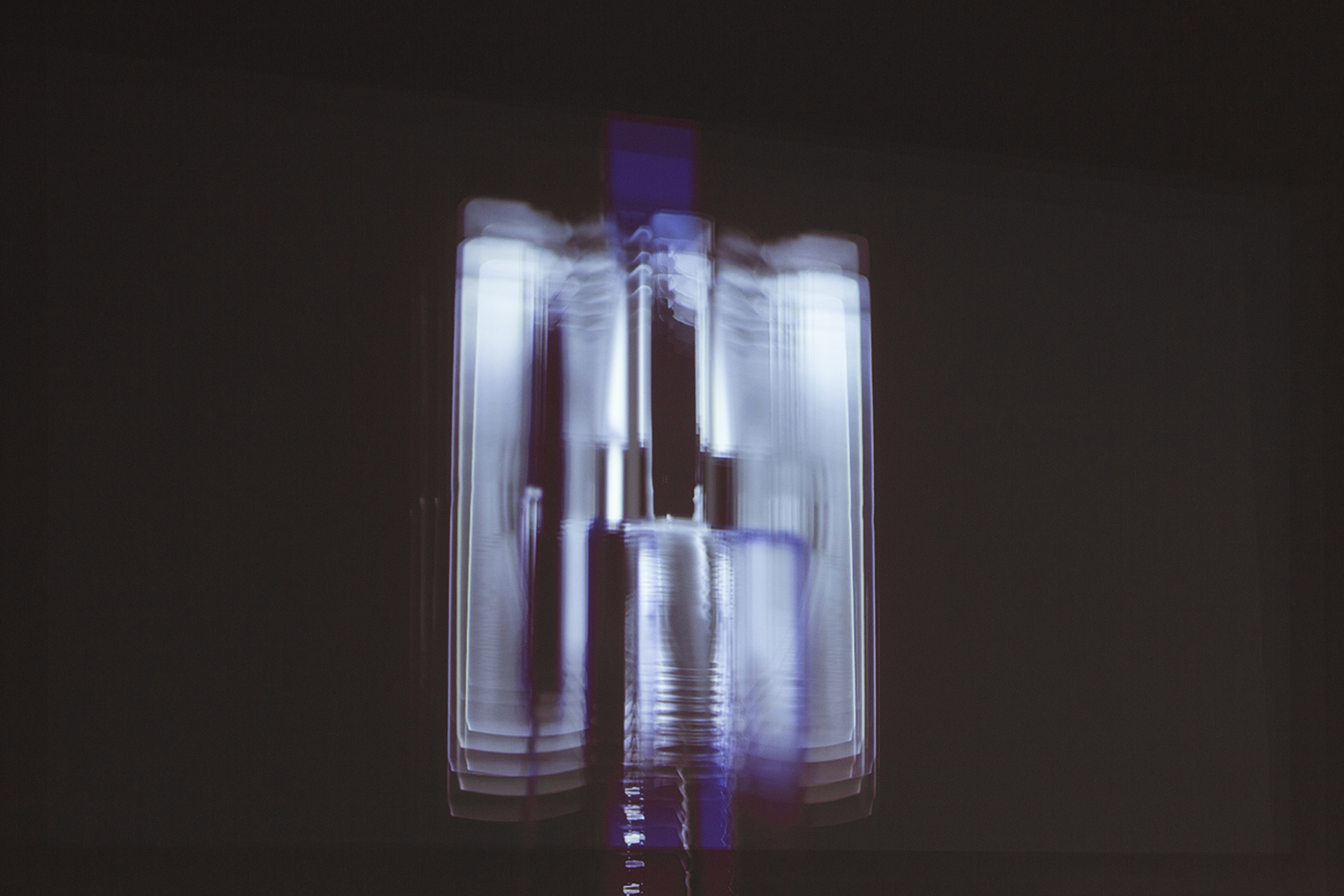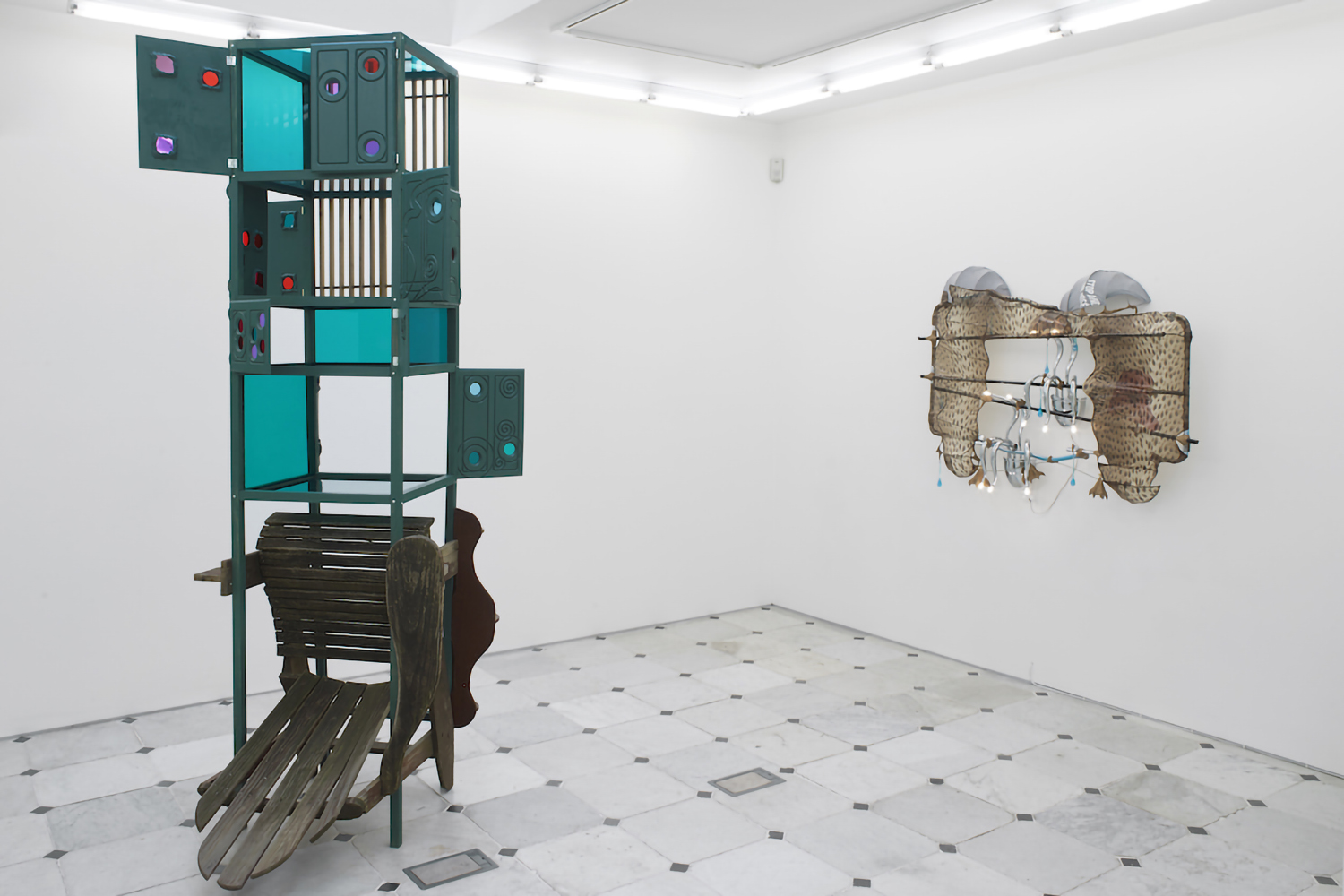After an unsuccessful attempt at seducing her neighbor, a young woman, who is the main protagonist in Keren Cytter’s new video Fashions, discovers a sequined swastika on his leather jacket. When the neighbor asks what it is, his response is a dire one-liner, delivered over his shoulder as he leaves her behind: “It’s fashion.”
His statement makes the leather jacket itself, presented as a second piece in Cytter’s gallery show, more than just a riff on ironic and intentionally provocative swastika garments, such as Sid Vicious’s T-shirt, to mention only the most iconic. It also addresses the common story of the products of subculture becoming first luxury and then mainstream accessories. As European support for the far right has grown, this dynamic has connected pop culture to the “culture” of populism and German history in particular.
The video follows three women living in a prototypically bourgeois German apartment: a young woman who nurses acrush on her stylish neighbor; her mother, a busy cook at a cafeteria; and her unemployed and submissive grandmother. In the beginning she watches a rather unsettling TV program with her grandchild, in which a young man demonstrates strangling techniques as a workout routine set to an easy-listening electro soundtrack. The passive grandmother, a „burden“ to the other two, is first exiled to the basement, before her grandchild sells her off to be the new subject to be strangled in the exercise program. A side story about Chinese organ harvesting from incarcerated or executed Falun Gong members also pops up on the young woman’s computer.
The half–hour video was originally produced for the Nicolaus Schafhausen’s ambitious exhibition “Tell me about yesterday tomorrow” at the Munich Documentation Center. Without the specific context of the institution and its focus on the memorialization of historical Nazi-terror, Cytter’s piece opens up to a more complex reading. It frames the rise of right–wing ideologies as less of an irrational turn, but a direct effect and continuation of a neoliberal agenda, that reduces individuals to bodies with an exchangeable value. If her sweet video connects fascism with fashion, it’s not about the high-end but the mainstream “putting the train to Auschwitz back on its tracks,” this time far beyond Germany and its history, but everywhere and every day.


